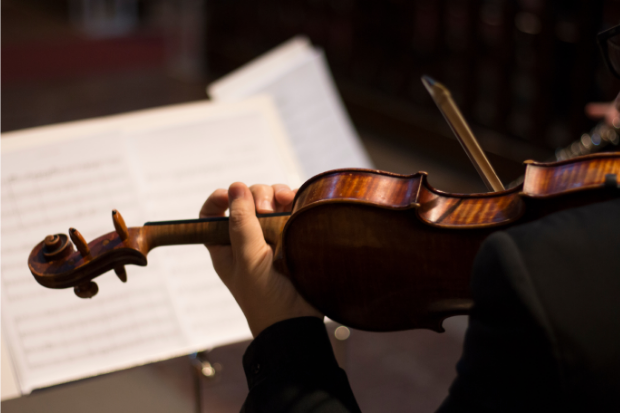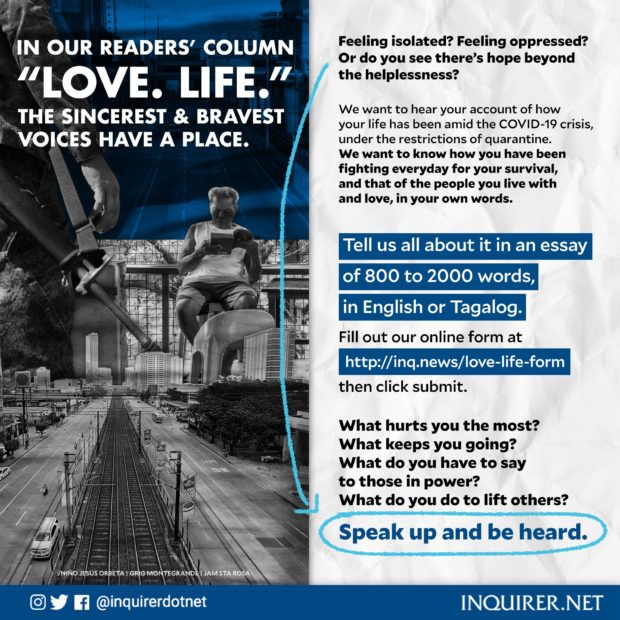A tale of two teachers

INQUIRER.net stock photo
I played the piano by ear ‘til college. The cheap keyboard my mother bought broke down before I finished my bachelor’s degree, and by the time I found a job, I was trying to look for another instrument to learn to play. I stumbled on the clips of Itzhak Perlman and David Garrett by accident, each playing their versions of “Humoresque no. 7 in D flat major,” and it was at those moments when I decided that it won’t be a bad idea to learn the violin while in my early 20s.
My first teacher was a music school instructor who was clearly disappointed that I bought a cheap violin in a shady music store (I had no leads, and it was all I could afford as a call center agent). The music school was reputable, occupying a decent space in a mall, air-conditioned, and housing a couple of soundproofed rooms linked by a single reception space where students — sometimes with the parents — wait just in case they arrive before their time.
I preferred to stay on the benches outside while waiting, but the staff usually invited me in and I wouldn’t have any choice but to sit and try to be less of an eyesore. It wasn’t an easy task, mainly because parents would sometimes ask me if I was a student myself, and I would just smile at them, say yes, and silently wish I had a better pair of sneakers or that I haven’t worn a print shirt. Or that I wasn’t 22 years old, 5-foot-9, and wasn’t a bit stooped in posture. My first teacher was a kind woman who tried to correct this posture and who had the patience of an iceberg. When she first saw my violin, she clicked her tongue and had a pained expression on her face. She said, “You shouldn’t have bought that.” She told me why. Before my first session, she sat and gave a quick concert to let me hear the difference between her instrument and the cheap one I brought. She played the same notes on both violins. “Did you notice it?” she asked me after, handing my instrument back. “Yours sounds like a tin can.” I nodded despite not catching the difference.
Lessons were P3,000 for six 30-minute sessions every Saturday. I was working for barely a year so that wasn’t exactly cheap for me. But it was something. I’d go home from my night shift, rest for a bit, ride a jeep, then walk under the raging 1 p.m. sun to reach the mall where the music school was. My progress was glacial. I only got the rudiments of holding the bow on the third meeting, and for the remaining sessions, the teacher tried not to bust a vein while I struggled with the C scale. After the sixth session, my mother asked me to play something. Very proudly, I stood in the living room to do the solfeggio. I did it fine, but her face told me how surprising it was that after more than a month I could only manage to play a squeaky version of the solfa syllables.
I didn’t sign up for another session with my first teacher after that. I figured I need to explore other options. About a week later, I found an online ad for violin lessons for only P50 per hour, and when I asked where the location was, I was more surprised to learn that it was nearer to my house.
My next violin practice happened then in a plywood church with a tin roof at the heart of a shantytown. My second teacher was a girl who couldn’t be older than me, and who always wore a blouse and a ruffled dress. Before we started my first session, she had me talk to her older brother first, a pianist who also happened to be a pastor. The man in slacks and pastel button-up had me sit with him in the front pew, under the eyes of God at the altar, where his crumbling upright piano was. He asked me about my faith and I mostly just nodded and agreed to what he said. Then he took my hands and asked me to close my eyes. I listened to him pray over for my soul for more than a couple of minutes. It ended, to my relief, and I finally found myself walking back to my new violin teacher at the last pews by the entrance.
“It’s just now,” she said, when I asked if I’d have to be prayed over every meeting. “You see, this is a place of faith, and while we don’t really aim to convert everyone, we could at least try to show people our values.”
We jumped right into the lessons after that. It was a mishmash of lessons, to say the least. One moment, we’d be doing the scales, another moment we’d be thumbing through the photocopied pages of a Suzuki Method book, with her trying to show me how a sheet should be played. In one session, we had a quiz on music theory before jumping right into the execution of glissandos and vibrato. I’d always end up more confused than enlightened after each session, after an hour’s worth of cramming concepts and techniques which must be worth several meetings and careful practices.
Needless to say, after several weeks of lessons, I failed to master anything.
I dropped my pursuit of playing the instrument altogether. My violin case gathered dust over the past couple of years, the strings long out of tune, and most of the lessons I paid for now obsolete.
Nothing much could be said of this experience. Except perhaps for the fact that I learned more than a few lessons along the way. More than the failed adventures at music, I learned that the things we set out to do would not always turn out to be what we imagined, and that’s alright. I was taught this by two teachers: one of them was the life as we imagined it, the care and structure we adapt to get the things we want; the other one was the life as life had for us, best paired with a blind faith at chance and luck and whatever else we may believe in.
Life, I guess, isn’t about controlling everything, or a blind surrender to fate. At this point, I haven’t got the skill to play Dvořák’s Humoresque. I recently caught myself listening to a piano arrangement of it, though, and it made me think: who knows? Maybe it isn’t too late to learn new things. I’m 25 now. I may have days or months or years in the future. I could save up for a decent piano. Perhaps it won’t be a bad idea to humor what we have ahead of us, then play everything else by ear.
_
George Gonzaga Deoso is the author of “The Horseman’s Revolt and Other Horrors” (UST Publishing House, 2020), a collection of dark short fiction. He was a graduate of AB Literature, based in Quezon City, and is currently working as a BPO writer for an American educational consulting company.
RELATED STORIES:
On my cousin France, a Filipino hoping to help out in Canada
Time, a past life, and dear Tony Leung

Image: INQUIRER.net/Marie Faro




















